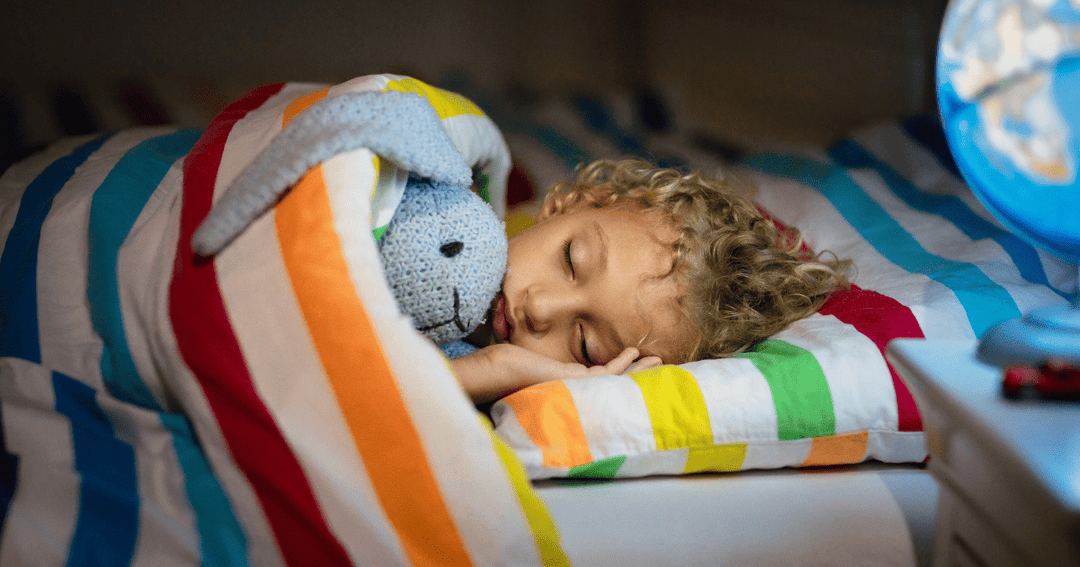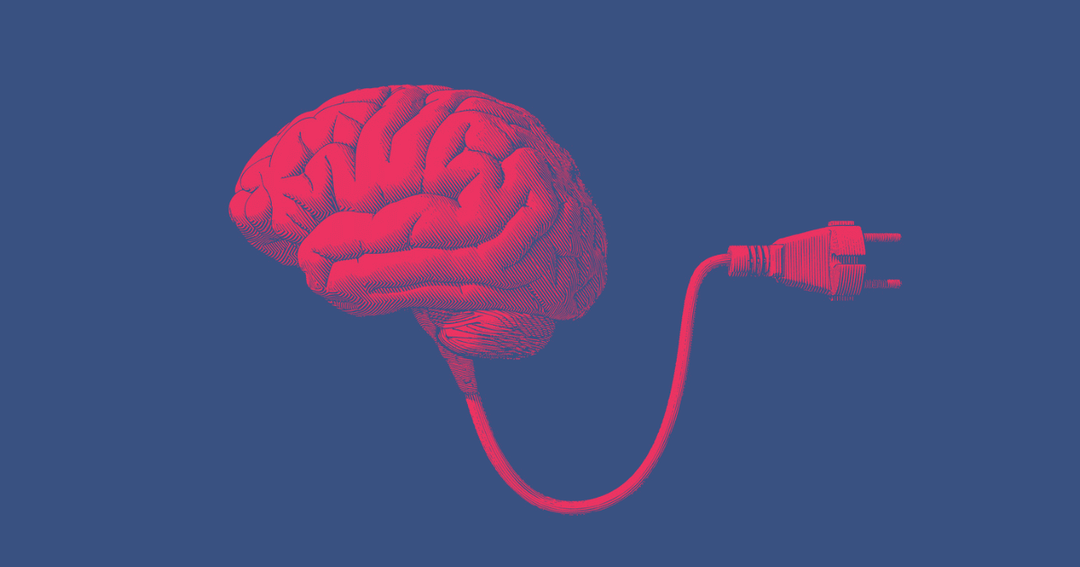How Does My Chronotype Affect My Sleep?

You've probably heard the terms "morning person" or a "night person" before. These actually describe your chronotype. While many of us understand circadian rhythms, our unique chronotypes have a big impact on our natural sleep patterns.
Research shows that if your chronotype is misaligned with your daily routine, you're more prone to developing insomnia. Insomnia, in turn, is linked to health issues like heart disease, diabetes, and even mental health struggles such as anxiety and depression.
Luckily, understanding your chronotype is key to getting better sleep and boosting your overall well-being.
In this article, we'll look into how your chronotype affects sleep and provide tips to help you sleep better - regardless of whether you're a night owl or an early bird.
What Is Your Chronotype, and Why Should You Care?
Your chronotype is simply your body’s natural sleep-wake cycle. It's like your inner clock, dictating when you naturally feel tired and awake. This internal timekeeper influences not only your sleep, but also your energy, mood, and even when you get hungry.
Your genes largely determine your chronotype - in fact, about 50% is inherited. However, your age and lifestyle can cause subtle shifts over time.
So, why is understanding your chronotype so important?
When your daily routine lines up with your natural chronotype, you're much more likely to enjoy:
- Improved Sleep: You’ll drift off easier, sleep more soundly, and wake up feeling truly refreshed.
- Increased Energy & Focus: You'll have more energy when you need it most, allowing you to power through your day.
- Better Mood: A schedule that works with your chronotype reduces stress, improves your mood, and makes you just feel better overall.
- Healthier You: Studies show that forcing your body into a schedule that fights your natural tendencies can increase your risk of serious health issues like stroke, heart disease, and even mental health conditions.
By understanding your chronotype, you can create a schedule and lifestyle that complements your natural rhythms, setting yourself up for optimal sleep and better overall health.
What Shapes Your Unique Chronotype?
As we mentioned, your genes have a big say in your chronotype. Scientists have pinpointed certain “clock genes” that directly influence our natural sleep preferences.
For instance, variations in a gene called PER3 can determine if you're more likely to be a morning lark or a night owl.
That said, your chronotype isn't set in stone by your genes alone. Other factors that come into play include:
- Age: Your chronotype naturally changes throughout your life. Children tend to be early risers, transitioning into "night owl" mode during the teenage years. As we mature into adulthood, we often gradually shift back toward being early birds.
- Environment: The amount of light you're exposed to, your social calendar, and the demands of work or school can all impact your sleep patterns—and even slightly shift your chronotype over time.
- Lifestyle Choices: Stress, what you eat and drink (especially caffeine!), how much you exercise, these things can also affect your sleep preferences and even lead to chronotype shifts.
The 4 Main Chronotypes: Which One Are You?
Everyone has a slightly different sleep rhythm, but most of us fall into one of four main chronotype categories. Take a look and see if any of these sound like you.
|
Chronotype |
What You're Like |
When You're Most Productive |
Things That Can Be Tough |
|
Lion |
Early bird! Wakes up energized and ready to go. Most productive in the morning. Prefers an early bedtime. (Not as common as other types) |
Before Noon |
Staying up late for social events can be tough. |
|
Bear |
Enjoys a consistent sleep schedule. Wakes up and goes to bed around the same time each day. (This is the most common chronotype.) |
Mid-Morning |
Energy can dip in the afternoon. |
|
Wolf |
A true night owl! Most productive later in the day and prefers a late bedtime. Early mornings can be a challenge. (Not as common as other types). |
Afternoon/Evening |
Not getting enough sleep when having to wake up early. |
|
Dolphin |
Has trouble sleeping soundly, often waking during the night. Energy levels change a lot throughout the day. (A less common chronotype.) |
Energy levels change, but often more energy in the afternoon. |
Often struggles with insomnia and irregular sleep patterns. |
Chronotype vs. Circadian Rhythm: What's the Difference?
While they're related, it's important to understand that "chronotype" and "circadian rhythm" aren't quite the same. Think of it this way:
- Circadian Rhythm: Your circadian rhythm is your body’s master clock. It follows a natural 24-hour cycle, controlling important functions like sleep, hormone release, and body temperature.
- Chronotype: Your chronotype is where you fall on that 24-hour cycle. Are you naturally drawn to the early hours (an early bird) or are you most productive later in the day (a night owl)? That's your chronotype!
Here’s a helpful analogy: your circadian rhythm is like the sun rising and setting each day. Your chronotype determines if you’re the type of person who thrives at sunrise or someone who prefers the moonlit hours.
While you can temporarily adjust your circadian rhythm (think about adjusting to a new time zone with light therapy), your underlying chronotype tends to stay pretty consistent.
When Your Chronotype and Schedule Collide
If your daily schedule doesn’t match your natural chronotype, it can really hurt your sleep quality. Research shows that even a one-hour difference between when your body naturally wants to sleep and when you’re forced to wake up can have negative consequences. This kind of misalignment makes you more likely to develop health problems, including heart problems.
This clash between your inner clock and your daily routine can also lead to "social jetlag." Like regular jetlag, social jetlag disrupts your body's natural rhythms, which impacts both your physical and mental health.
For instance, someone who's naturally a night owl (Wolf chronotype) but has to work an early shift will likely get less sleep and feel tired throughout the day. This, in turn, affects their focus and productivity.
Can You Change Your Chronotype?
We might dream of effortlessly switching from a night owl to a morning person, but our genes have a big influence on our natural sleep patterns. While you can’t completely transform your chronotype, there are definitely ways to manage it.
By making a few adjustments to your schedule and building good sleep habits, you can start working with your body’s natural rhythm instead of against it. This leads to better sleep, no matter what your chronotype.
Tips for Better Sleep - No Matter Your Chronotype
Getting enough sleep is crucial for everyone, but it can be especially tough if you’re a night owl living in a morning-person world. Thankfully, you can significantly improve your sleep by developing healthy sleep habits like:
- Sticking to a Consistent Sleep Schedule: Try to go to bed and wake up around the same time each day, even on weekends, to keep your inner clock running smoothly.
- Creating a Relaxing Bedtime Routine: Wind down an hour or two before bed by doing calming activities, such as taking a warm bath, reading, or listening to relaxing music.
Need An Extra Boost?
Sometimes, lifestyle changes alone aren't enough. If you’re looking for additional support, a natural sleep aid like Sip2Sleep® can help.
Sip2Sleep® combines clinically proven, natural ingredients - including Montmorency Tart Cherry Extract (a natural melatonin alternative) and Venetron® - to encourage relaxation and restful sleep. The best part? It's completely melatonin-free and doesn’t require a prescription.
Here's how to use Sip2Sleep® for optimal results: Fill the dropper as much as possible, then place 1-3 full droppers under your tongue about 30-45 minutes before bedtime.
Taking Sip2Sleep® directly under the tongue allows for faster absorption and can be more effective.
It's safe, non-habit-forming, and highly effective—a natural solution to help you achieve your best sleep.
Ready For Your Best Sleep Ever? Visit our website today to discover more about Sip2Sleep® or to place your order.






